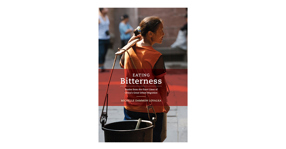We’re pleased to provide you with insights like these from Boston Private. Boston Private is now an SVB company. Together we’re well positioned to offer you the service, understanding, guidance and solutions to help you discover opportunities and build wealth – now and in the future.
Children of ultra-high-net-worth individuals face more risks online
While everyone should take precautions when chatting or posting online, for the children of ultra-high-net-worth individuals, the risks can be even higher. Theft and even kidnapping are ever-present fears for wealthy parents, and kids on social media can inadvertently reveal information that should be kept private. Banning social networks altogether is unrealistic in this day and age, but here are some guidelines to help ensure that your children are using it safely.
Don't reveal your location
Many social networks automatically show your location unless you take precautions to hide it. Kids on social media don't always know this, especially if they're just starting out. If you share your location on Facebook or Twitter, it will automatically use your location on your next post or default to your current city. To avoid this, consider showing your children how to turn off all location services and location history in their privacy settings.
Social networks can reveal a lot about a person's whereabouts. A crew of burglars in Los Angeles monitored celebrities' social media posts to figure out when they were not at home. Talk to your children about avoiding geotags to specific locations, such as a museum, event or landmark. Remind them not to post about where anyone in your family is going, as posts about involvement in a high-profile party or fundraiser, an upcoming school trip or holiday are all giveaways about where someone will or won't be at a specific time.
Be cautious with photos
Photos can also reveal a lot about identity. A picture of a school or landmark can show location, a vacation photo with the whole family can broadcast that no one is home, a candid snapshot at home can display expensive valuables. Everyone curates their online image to some extent. Children of ultra-high-net-worth families should be reminded to be careful about sharing pictures that broadcast sensitive information about valuables or location.
Houston police recently arrested seven individuals involved in a burglary ring that used social networks to identify and target victims — stealing art, jewelry, computers and more. Criminals honed in on wealthy victims by monitoring their social networking feeds — if someone bragged about an expensive piece of artwork or jewelry, they would research the person, their homes, their schedule and travel plans.
In addition to being selective about what images to share, another tip is to ask your children to delay posts. Instead of posting live while on a trip or with friends, perhaps they can wait a few days or until they've returned home to share the photos. Many high-profile celebrities do this to avoid giving away information about their schedule and location.
Check your privacy settings
Photos and posts are public by default on networks like Instagram or Facebook but that can be adjusted through the privacy settings. Also, keep in mind that while changing privacy settings does help, privacy isn't a guarantee. Photos, posts and messages meant only for friends can quickly spread to a much larger audience. All it takes is someone to forward the post or take a screenshot.
Kids can send private or small group messages to one another via social networks, texts or group chat apps. In a small group among close friends, kids are more likely to share inappropriate things which could cause harm if it gets out. Once something is out on the internet, there's no way to reel it back in.
Cybercriminals are increasingly targeting the social media accounts of wealthy individuals. Through malware or by cracking easy-to-guess passwords, criminals can threaten to take control of accounts, delete them or share certain information unless they receive a ransom.
Parents should start a conversation with kids about safe practices on social media early, before kids start activating their own accounts. Even young children start their online journey by using other websites, so it's not too early to learn about safety and privacy.














